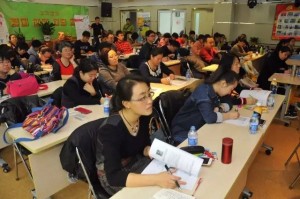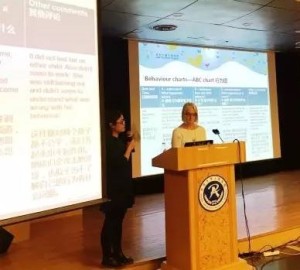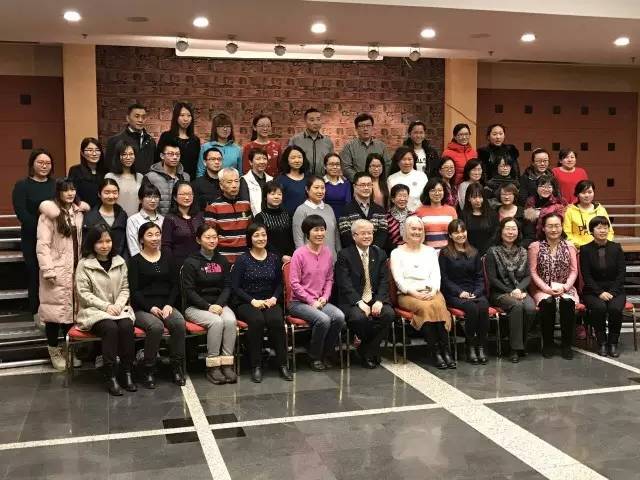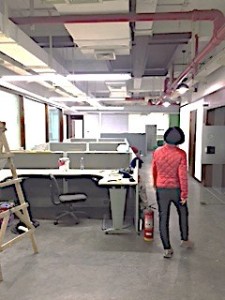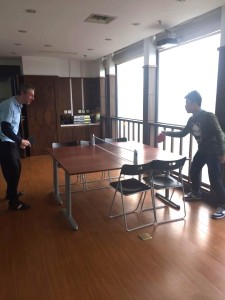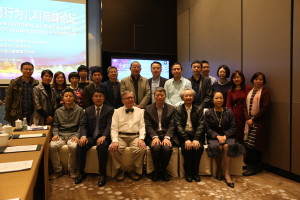 LIH Olivia’s Place Shenzhen Pediatric Clinic successfully hosted the first China-US Developmental Behavioral Pediatrics Summit of Guangdong Province on December 4th. The summit was co-organized by the Guangdong Medical Association’s Developmental-Behavioral Pediatrics Society, the Shenzhen Medical Association’s Pediatrics Society, and LIH Olivia’s Place Shenzhen. The summit welcomed over 30 pediatric specialists from all over Guangdong province and promoted academic exchange on key issues of developmental behavioral pediatrics. Professor Zou Xiaobing, Director of the Developmental-Behavioral Center at the Third Affiliated Hospital of Sun Yat-sen University, and Mr. Li Yaopei, Executive Vice President and Secretary General of the Shenzhen Medical Association, addressed the group as keynote speakers. Also in attendance were Ms. Luo Xiaoqiong, Deputy Secretary-General of the Shenzhen Medical Association, and Mr. Sun Changsen, CEO of LIH Healthcare.
LIH Olivia’s Place Shenzhen Pediatric Clinic successfully hosted the first China-US Developmental Behavioral Pediatrics Summit of Guangdong Province on December 4th. The summit was co-organized by the Guangdong Medical Association’s Developmental-Behavioral Pediatrics Society, the Shenzhen Medical Association’s Pediatrics Society, and LIH Olivia’s Place Shenzhen. The summit welcomed over 30 pediatric specialists from all over Guangdong province and promoted academic exchange on key issues of developmental behavioral pediatrics. Professor Zou Xiaobing, Director of the Developmental-Behavioral Center at the Third Affiliated Hospital of Sun Yat-sen University, and Mr. Li Yaopei, Executive Vice President and Secretary General of the Shenzhen Medical Association, addressed the group as keynote speakers. Also in attendance were Ms. Luo Xiaoqiong, Deputy Secretary-General of the Shenzhen Medical Association, and Mr. Sun Changsen, CEO of LIH Healthcare.
During his keynote speech, Professor Zou Xiaobing noted that with the development of society, culture, and economy, pediatric medicine has made remarkable advances in the past few decades thanks to the efforts of pediatric medical staff everywhere. At the same time, with the increasing pace of social development and daily life, comes changes to children’s living environment and increased awareness of mental health concerns. The result is that the medical model is increasingly one that connects the biological, the psychological, and the social. Although many health problems urgently need to be addressed in traditional pediatrics, there are now significant changes to our understanding of the spectrum of pediatric illnesses. Diagnoses of ADHD, learning disorders, and autism spectrum disorder have been increasing among children year by year, and child development and behavioral disorders have become important issues in pediatrics.
Mr. Li Yaopei, Executive Vice President of the Shenzhen Medical Association, addressed the public health implications of developmental and behavioral disorders during his keynote, and why it needed to be on the agendas of medical institutions, academic organizations, and governments at all levels, and to increase scientific and clinical research efforts. Moreover, he stressed that from a social perspective, regarding the families of children with autism as a vulnerable social group, we need to have “three hearts” for them: first is to have “the heart full of love”, from the social, medical, and health point of view, we should care for and love them; the second is to have ” perseverance”, that positive social outcomes are difficult to achieve without long-term sustained attention from society; and the third is “dedication” – dedicated responsibility towards individual rehabilitative treatment.
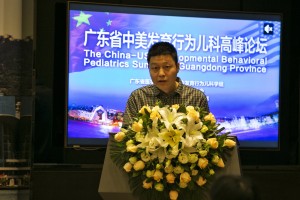
Dr. Yang Binrang, Shenzhen Children’s Hospital, addresses the audience about learning disorders
After the keynotes, Professor Zou Xiaobing, and Dr. Raymond C. Tervo, Chief Developmental Behavioral Pediatrician of LIH Healthcare, and Dr. Yang Binrang Director of Child Healthcare Department at Shenzhen Children’s Hospital each made presentations. Professor Zou introduced the history of developmental behavioral pediatrics and emphasized the importance of early screening, diagnosis, and intervention in developmental-behavioral disorders. Dr. Tervo presented clinical research on the effects of medication in the treatment of children with developmental delay and ADHD. Dr. Yang gave a comprehensive presentation on the pathogenesis of learning disorders, its early manifestation, and the evaluation, diagnosis, and treatment of learning disorders.
The summit fostered an academic exchange of ideas between Chinese and American pediatric specialists and motivated attendees to promote the improvement and progress of early detection, diagnosis, and treatment of children with developmental and behavioral disorders in Guangdong Province and throughout China.




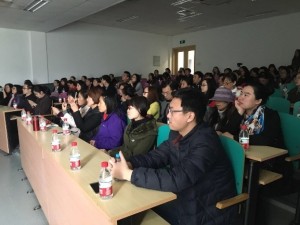
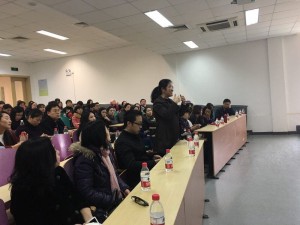
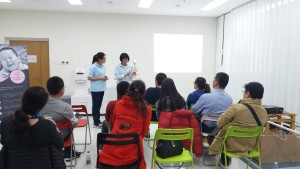
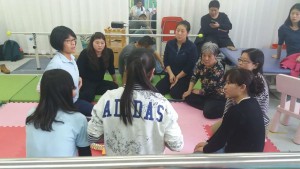


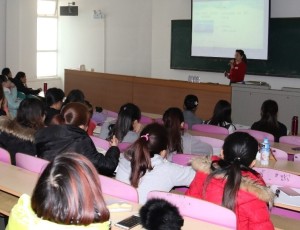
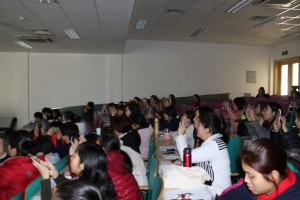
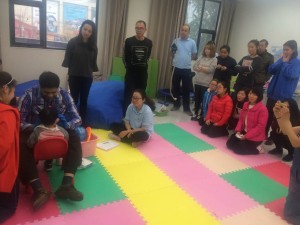
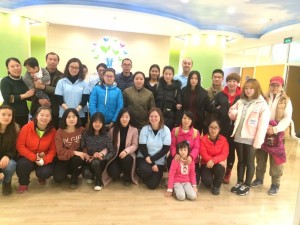
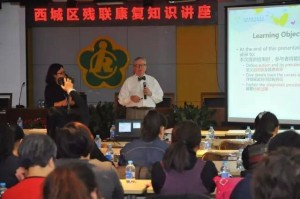 s the mission of LIH Olivia’s Place to improve the quality and prevalence of pediatric rehabilitation services in China and to help all children with special needs receive professional and effective rehabilitation service. In addition to providing high quality of service, LIH Olivia’s Place is also committed to promoting communication and interaction among professionals in this field. In November, Dr. Raymond Tervo, Developmental Behavioral Pediatrician, participated in several professional development events in Beijing.With abundant research and clinical experience, Dr. Tervo has previously practiced at the Mayo Clinic and as a professor of pediatrics at the University of Minnesota.
s the mission of LIH Olivia’s Place to improve the quality and prevalence of pediatric rehabilitation services in China and to help all children with special needs receive professional and effective rehabilitation service. In addition to providing high quality of service, LIH Olivia’s Place is also committed to promoting communication and interaction among professionals in this field. In November, Dr. Raymond Tervo, Developmental Behavioral Pediatrician, participated in several professional development events in Beijing.With abundant research and clinical experience, Dr. Tervo has previously practiced at the Mayo Clinic and as a professor of pediatrics at the University of Minnesota.